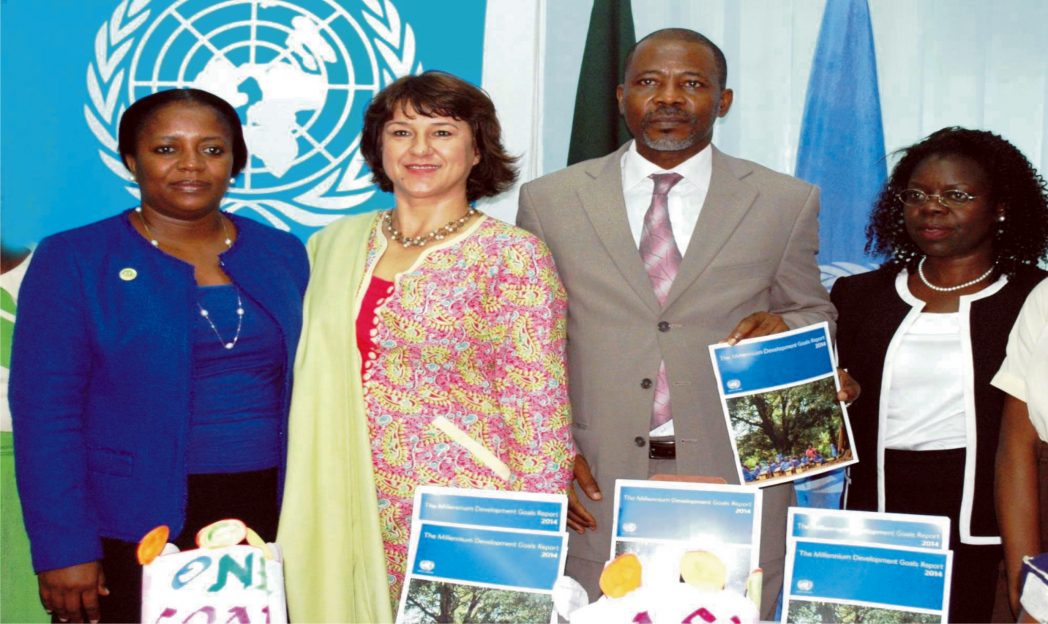Business
Foundation To Fund 1,000 Entrepreneurs In 2015
The founder of the Tony
Elumelu Foundation, Mr Tony Elumelu, has said the organisation has set up $100 million fund to help develop 1,000 entrepreneurs in Africa in 2015.
Elumelu, who disclosed this during the foundation’s Africapitalism Institute Annual Advisory Board Meeting in Abuja said the institute was formed in 2014 to research, analyse and advocate public policies and business practices that would unlock opportunities for Africans.
According to him, the organisation will give out $10,000 each to 1,000 entrepreneurs in Africa in 2015, adding that it had already received over 3,000 applications to that effect.
Elumelu said that it would be difficult for Africa to move forward while leaving behind over 50 per cent of its population in penury.
He said Africans, especially women, should be sensitised on how to access the fund, adding that it would bolster inclusiveness in the continent’s economic growth and development.
He debunked insinuation that the African resources had not been adequately mobilised, adding that there had been cases of effective intra and inter-African resources mobilisation.
According to him, unlike in the past when people saved their money outside the continent nowadays, more Africans save and invest on the continent.
“We have seen a couple of such examples. Dangote is one; UBA is another and many others are investing massively in the continent creating the much needed value path and to sustain our economy.
“There is the realisation that the private sector is the key for the development of the continent.
“In furtherance of that, the Tony Elumelu Foundation has put in place 100 million dollars fund to help catalyse the crop of entrepreneurs who will fire up the private sector in Africa,” he said.
During a panel discussion, the Chairman, Cities Growth Commission in the UK, Dr Jim O’Neill, said there was the need for African countries to focus on policies that would ensure sustainable growth.
O’Neill said the continent could help its people by creating more African entrepreneurs, developing more ideas and innovation and creating access to finances.
The Managing Drector, Groupe Jeune Afrique and President, Africa CEO Forum, Mr Amir Yahmed, said that many big companies had emerged from Africa in the last five years.
Yahmed said that a lot needed to be done to encourage the private sector to drive the continent’s economy.
The Managing Director, Bank of Industry, Mr Rasheed Olaoluwa, said there was need for consistency in policy formulation and implementation to encourage investors to invest and operate in the continent.
Olaoluwa said the Federal Government was engaging key players in the manufacturing sector to drive its industrial revolution plan by creating the enabling environment for them to thrive.
He said Nigeria was a net importer of cement about five years ago but had become a major exporter of cement to other African countries.
Olaoluwa said the bank was working with research centres to develop some of the technological research outcomes that could help the country process its agro products into raw materials.

From Left: President, Strategy for Mentoring Indicative and Leadership Empowerment, Mrs Bimpe Martins, Senior Information Officer, Unic, Ms Envera Selimovic, representative of Governor of Lagos State, Mr Seun Akinsaya and representative of unresident coordinator in Nigeria, Ms Colleen Zamba, at the regional launch of the Millennium Development Goals report 2014 in Lagos recently
Business
Nigeria’s ETF correction deepens as STANBICETF30, VETGRIF30 see 50% decline in a week

Business
BOI Introduces Business Clinic

Business
Dangote signs $400 mln equipment deal with China’s XCMG to speed up refinery expansion

-
Maritime3 days ago
Nigeria To Pilot Regional Fishing Vessels Register In Gulf Of Guinea —Oyetola
-

 Sports3 days ago
Sports3 days agoGombe-Gara Rejects Chelle $130,000 monthly salary
-
Maritime3 days ago
Customs Declares War Against Narcotics Baron At Idiroko Border
-
Maritime3 days ago
NIMASA,NAF Boost Unmanned Aerial Surveillance For Maritime Security
-

 Sports3 days ago
Sports3 days agoTEAM RIVERS SET TO WIN 4×400 ” MORROW” …Wins Triple jump Silver
-

 Sports3 days ago
Sports3 days agoNPFL Drops To 91st In Global League Rankings
-
Maritime3 days ago
NIWA Collaborates ICPC TO Strengthen Integrity, Revenue
-

 Sports3 days ago
Sports3 days agoNPFL Impose Fines On Kwara United Over Fans Misconduct

